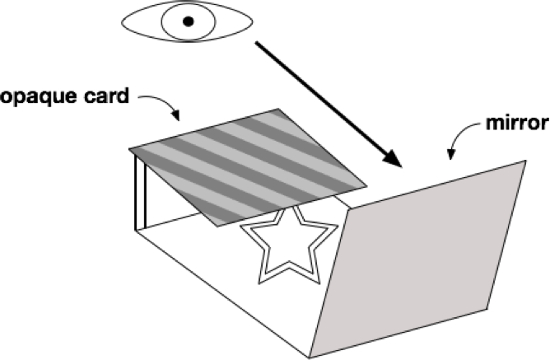顺行性遗忘症
Overview
资料来源: 乔纳斯 · 卡普兰和莎拉一、 贝尔实验室 — — 南加利福尼亚大学
顺行性遗忘症是形成新记忆能力的丧失。这可以区别逆行性遗忘,这是旧的记忆丧失。顺行性遗忘症损伤会引起结构在大脑中所涉及的新记忆的形成。病人有损伤结构的内侧颞叶,包括海马、 杏仁核和周围的皮质,常有严重的赤字在某些种类的记忆的形成。这些案件可以作为对信息化如何在大脑中,组织了内存,以及如何不同系统支持不同种类的记忆。
在本视频中,我们将测试一系列旨在区分不同形式的内存记忆任务内侧颞叶损伤患者。首先,我们将测试短期记忆或工作记忆,它是我们用来暂时牢记信息的过程。接下来,我们将测试两种不同形式的长期记忆: 外显和内隐记忆。外显记忆是神志清楚和容易用言语表达。例如,记忆的事实或情节从我们的生活是外显记忆。我们吃早餐,或哪个城市是法国的首都,我们可以轻松地告诉别人。内隐记忆涉及到的知识我们可以从经验中学,但这不是很容易表述。例如,知道如何去做的事情,或变得习惯于刺激是形式的内隐记忆。
这些程序是以著名病人亨利 Molaison,也知道他名字的首字母陛下,由于手术治疗难治性癫痫的零件两颞叶切除患顺行性遗忘症的研究为基础的。1我们将执行测试的数字跨度,短期记忆,配对副教授学习,措施明确或陈述性记忆,测试和镜子-绘图,隐式技能学习测试的措施。2
Procedure
1.招募参与者。
- 招聘内侧颞叶损伤患者。
- 有几个原因的内侧颞叶损伤,从手术到病毒性疾病和其它退行性的条件。在本研究中,我们将测试类似于亨利 Molaison 有海马状突起的部分病人和周围颞叶癫痫外科治疗的一部分删除。
- 为了能对参与各种形式的记忆的大脑结构得出结论,执行影像识别和描述结构损伤的程度。
- 招聘 15 年龄匹配的对照组与健康大脑和无神经系统疾病史。
- 从参与者获得知情同意。
2.测试短时记忆: 数字集中3
- 向参与者提供说明。
- 指示参与者,当他或她听到一连串的数字,他们是试图记住他们,说他们回到实验者,按顺序,尽快完成实验者清单的位数。
- 执行正向数字广度测验。
- 说话的数字对的病人,在率约 1/s.列表数字取自随机数字的列表。
- 开始用四位数字序列。执行三项试验的四位数字。如果参与者
Results
Application and Summary
References
- Scoville, W.B. & Milner, B. Loss of recent memory after bilateral hippocampal lesions. J Neurol Neurosurg Psychiatry 20, 11-21 (1957).
- Milner, B., Corkin, S. & Teuber, H.L. Further Analysis of Hippocampal Amnesic Syndrome - 14-Year Follow-up Study of Hm. Neuropsychologia 6, 215-& (1968).
- Drachman, D.A. & Arbit, J. Memory and the hippocampal complex. II. Is memory a multiple process? Arch Neurol 15, 52-61 (1966).
- Uttl, B., Graf, P. & Richter, L.K. Verbal Paired Associates tests limits on validity and reliability. Arch Clin Neuropsychol 17, 567-581 (2002).
- Milner, B. Memory and the medial temporal regions of the brain. in Biology of Memory (eds. Pribram, K.H. & Broadbent, D.E.) 29-50 (Academic Press, New York, 1970).
- Annese, J., et al. Postmortem examination of patient H.M.'s brain based on histological sectioning and digital 3D reconstruction. Nat Commun 5, 3122 (2014).
跳至...
此集合中的视频:

Now Playing
顺行性遗忘症
Neuropsychology
30.5K Views

裂脑
Neuropsychology
68.5K Views

电机的地图
Neuropsychology
27.7K Views

神经心理学的观点
Neuropsychology
12.2K Views

决策和爱荷华州赌博任务
Neuropsychology
32.9K Views

Executive Function in Autism Spectrum Disorder
Neuropsychology
18.0K Views

生理相关的情感识别
Neuropsychology
16.4K Views

事件相关电位和古怪任务
Neuropsychology
27.6K Views

语言: 在语义错位 N400
Neuropsychology
19.7K Views

学习和记忆: 记得知道任务
Neuropsychology
17.3K Views

测量与基于体素的形态计量学的灰质分歧: 音乐的大脑
Neuropsychology
17.4K Views

解码听觉表象与磁模式分析
Neuropsychology
6.5K Views

功能磁共振成像视觉注意: 基于调查的对象的注意力控制
Neuropsychology
42.2K Views

弥散张量成像在创伤性脑损伤
Neuropsychology
16.9K Views

利用经颅磁刺激在行动观察测量运动兴奋性
Neuropsychology
10.3K Views
版权所属 © 2025 MyJoVE 公司版权所有,本公司不涉及任何医疗业务和医疗服务。
